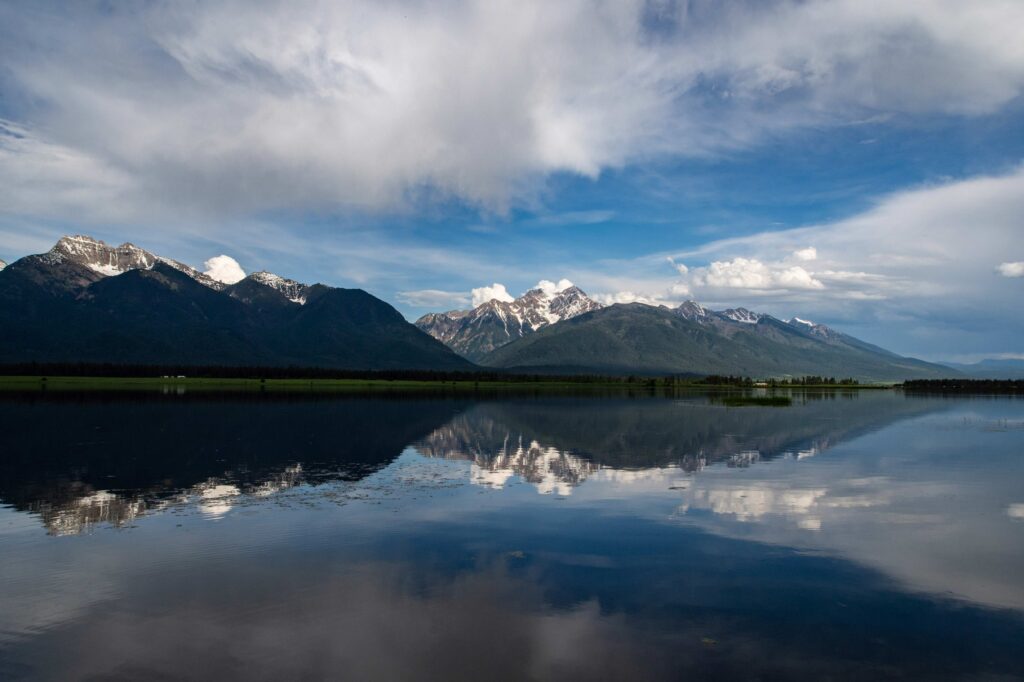by Clayton Elliott, MTU Conservation and Gov’t Affairs Director
After years of negotiations, MTU celebrates the recent passage of the landmark Montana Water Rights Protection Act, S. 3019.

This bill finally provides Congressional ratification of the negotiated water compact and settlement between the Confederated Salish and Kootenai Tribes (CSKT), the State of Montana, and the United States. Congress noted that the $1.9 billion CSKT water compact is the largest water rights settlement in history between the federal government and a federally-recognized tribe. Foremost, the legislation finally settles on and off reservation-based water rights thereby avoiding decades of costly litigation that would create tremendous uncertainty for nearly all water users in western Montana.
As part of recognizing and ratifying CSKT’s water rights, the settlement will provide millions of dollars in renovation and restoration funds to the Flathead Indian Irrigation Project that will deliver benefits to coldwater fisheries important to Westslope cutthroat and bull trout in western Montana.
The bottom line is that this legislation is good for Montana’s coldwater fisheries and their habitat. This bipartisan agreement inks into law a robust partnership for the future cooperative management of water in Western Montana. In addition to resolving for all time the legitimate, legal, and considerable water rights claims of the Tribes, saving decades of costly litigation and uncertainty, it also will inject millions of dollars into collaborative restoration of our wild fish and their habitats while upgrading aging irrigation infrastructure critical to the Tribes and agricultural users.
Here are some more details about why the MWRPA is good for Montana and our trout populations:
- The Compact resolves for all time the very legitimate, legal and considerable water right claims of the Tribes on and off the reservation. As such, it will benefit owners of water rights in all of Montana west of the Divide, as well as in the upper Missouri and Yellowstone basins, because it obviates the needs for the Tribes from filing water right claims – as they are otherwise legally entitled to do – on the reservation and within their aboriginal territory. This will save water right owners and the State of Montana millions of dollars in litigation and court-related costs that come with defending claims in water court and other jurisdictions. By not adding thousands of new claims in water courts, Montana’s general adjudication of water rights can advance in a judicious and much less expensive fashion. If the Compact doesn’t get ratified, the Water Court estimates adjudication of water rights in Montana could take another two decades, at least.
- The Compact protects current irrigators on the reservation, including within the Flathead Indian Irrigation Project (FIIP), by ensuring they continue to get water they have been legally entitled to in the past. It provides legally guaranteed water deliveries to FIIP irrigators in perpetuity – a guarantee that few, if any other water users in the State have. The Compact also protects all non-irrigation water rights from a tribal call on water, and it protects existing rights on and off the reservation by limiting tribal rights.
- The Compact will make available up to 90,000 acre-feet of stored water from Hungry Horse Reservoir for future development in the Flathead Basin. Up to 11,000 can be used in Montana, off the reservation. This water can be used to supplement irrigation, residential or fishery needs, or to mitigate the effects of new development on existing water rights. This water cannot be used out of state.
- Passage of the Compact will benefit water users on the reservation by triggering state expenditures of $55 million for improving irrigation infrastructure, paying for pumping costs and water measurement, and investing in stream habitat restoration. Additional federal funds will also be made available for infrastructure that will benefit both tribal and non-tribal water users. These activities will have beneficial values to coldwater fisheries on and off the reservation.
- The Compact tangibly benefits fish and wildlife. Specifically, it includes enhanced protections for instream flows for important trout populations on the Flathead Indian Reservation and for the upper Clark Fork River. It also helps protect current streamflow guarantees off-reservation in the Bitterroot, Blackfoot, Flathead, Swan and Kootenai River basins.
- All off-reservation water rights granted to the Tribes in the Compact are either subordinate to, or parallel to existing water rights or dam license conditions held by the State of Montana and the federal and private utilities.
- Upon ratification, the CSKT will be giving up forever any future claims to water everywhere in Montana, saving decades of costly litigation and uncertainty for water users and coldwater fisheries.
- Implementation of the agreement will produce new and productive partnerships that will focus on the common objective of making water go farther for more uses – an important objective in the face of a shifting climate.
We’d like to extend a special thank you to our entire congressional delegation and all our partners in this long process. Because of your efforts, we will finally have certainty in these watersheds and the cold water fisheries of Montana will be better for it, now and in the future. Happy New Year!

